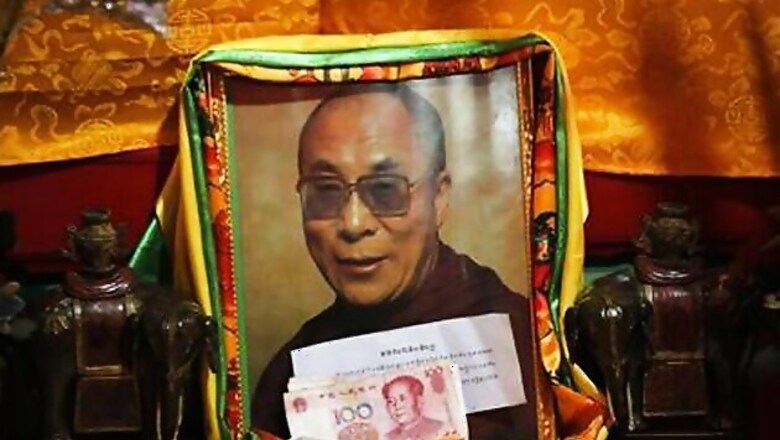
views
China's top official in charge of religious groups and ethnic minorities vowed on Tuesday to step up the fight against exiled Tibetan spiritual leader the Dalai Lama, as a rights group reported police shootings of monks marking his birthday.
The comments by Yu Zhengsheng, number four in the ruling Communist Party's hierarchy, appear aimed at thwarting speculation that China's new leadership could take a softer line on the Dalai Lama.
Beijing considers the Dalai Lama, who fled China in 1959 after an abortive uprising against Chinese rule, a violent separatist. The Dalai Lama, who is based in India, says he is merely seeking greater autonomy for his Himalayan homeland.
Visiting a heavily Tibetan area of the western province of Gansu, Yu told local officials and religious leaders that the Dalai Lama's separatist activities ran counter to the country's interests and to Buddhist tradition.
"For the sake of national unity and the development of stability in Tibetan regions, we must take a clear-cut stand and deepen the struggle against the Dalai clique," the official Xinhua news agency cited Yu as saying.
Buddhist leaders must be guided to oppose separatism and any efforts to damage the Communist Party's leadership, added Yu, who is head of a largely ceremonial advisory body to parliament which aims at coopting religious and minority groups.
Yu repeated that ties with the Dalai Lama could only improve if he openly recognised that Tibet has been a part of China since ancient times and abandoned his Tibetan independence activities, Xinhua reported.
"The Dalai Lama's 'middle way' aimed at achieving so-called 'high-degree autonomy' in 'Greater Tibet' is completely opposite to China's constitution and the country's system of regional ethnic autonomy," Yu added, according to Xinhua.
Speculation China would take a softer line towards the Dalai Lama had been fuelled in part by an essay written by a scholar from the Central Party School, who said that China could take some steps toward resuming talks with the Dalai Lama's representatives, which broke down in 2010.
Rights groups also say there has been some discussion about lifting restrictions on public displays of the Dalai Lama's picture in Qinghai province, where the monk was born.
Despite a heavy security presence, protests and resistance against Chinese rule in Tibetan areas have continued.
Police in a restive Tibetan part of Sichuan province opened fire on a group of monks and others who had gathered to mark Dalai Lama's birthday over the weekend, seriously injuring at least two, the US-based International Campaign for Tibet said.
While Chinese security forces often use heavy-handed tactics to stop protests in Tibetan regions, they rarely use guns.
Officials reached by telephone in Ganzi said they had no knowledge of the incident.
China's Foreign Ministry said it was also unaware of the reports, but said the Dalai Lama was using the opportunity of his birthday to promote his separatist agenda.
At least 119 Tibetans have set themselves alight in protest against Chinese rule since 2009, mostly in heavily Tibetan areas of Sichuan, Gansu and Qinghai provinces rather than in what China terms the Tibet Autonomous Region. Most have died.


















Comments
0 comment